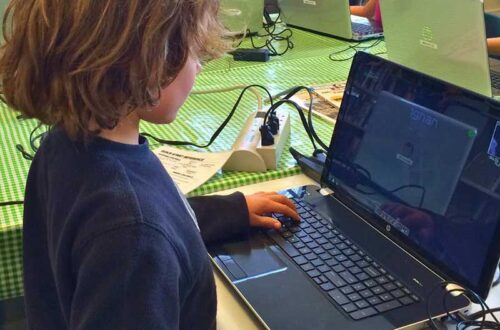Finding Common Ground in Parental Disagreements
By Bob Derber and Judge Paul Marigonda
Parents who co-parent well may still encounter issues they cannot agree upon in raising their children. You might agree 90% of the time, but are stuck on that ‘one issue’ where resolution is difficult.

Perhaps it is a summer vacation schedule, or a child who wants to participate in a sport that give you pause. You know the worst outcome is conflict – as parental conflict always negatively impacts the children. What can you do?
An incredible resource our Superior Court offers is Family Court Services mediation. You may have used this resource when you were navigating custody or parent-time issues years ago during your divorce. But did you know that this mediation remains available, typically free of charge, to help you resolve a difficult issues that may arise years after your divorce is final?
The process is called Child Custody Recommending Counseling (CCRC). Families are entitled to three free hours of CCRC each year. CCRC is a process where you can present issues to a trained mediator (often a social worker with years of experience) for a recommendation resolution.

Getting started is easy. You agree to mediate using a form available online (the form is a SUPCV-967, and can be found at https://www.santacruzcourt.org/forms-filing/local). Once filed, the court will issue an order that sets a date for the mediation. This is typically four to six weeks from the date the court receives the form.
Mediation occurs at the Watsonville courthouse (3rd Floor, 1 Second Street, Watsonville). Prior to mediation, there is a 4-page form you submit to give the mediator background information and to help you specifically frame your issues and your suggestion as to how they may be resolved. When matters involve a therapist or doctor, you may be asked to sign a release so the mediator can contact these individuals. If so, it is always best that you give these professionals some prior notice to expect a call by the mediator so that they are not surprised by the contact.
At your appointment, you may be interviewed together or separately. If you are able to reach an agreement immediately, the mediator will create a stipulation which you can sign right then and it will be filed with the court. If you are unable to reach agreement, the mediator may then choose to interview your child (if old enough), a teacher or a health care provider if they think this can help find a solution.
In the mediation itself, each of you are interviewed for about a half-hour. The mediator asks several questions to better understand the circumstance. As well, the mediator has full access to your court records if s/he needs further information from that file.
After the mediator conducts any further background review that s/he deems appropriate, s/he will issue a written report outlining what was learned in the mediation. This report includes a recommended solution. The report is provided to both of you and filed with the court, but it is otherwise confidential.
You do not need to ask the court for an order concerning the issues you present at mediation. But if you want an order, the mediator’s recommendation is submitted to the court for it to adopt as the court’s order. This may be important if the order is needed by a third party, such as a physician or governmental entity. If you still disagree, the report is also available to the judge as input to consider if the matter required a judges decision.
Child Custody Recommending Counseling through our Family Court Services helps parents reach agreement concerning custody and parenting time with their children. You do not need to be in serious conflict to ask for help through mediation. It is a service intended to help parents come to terms with issues they find difficult to resolve alone. The highly trained individuals at Family Court Services put family first and provide professional insight you may have overlooked. Since they can speak with a doctor, educator, or even your child, they can provide you with valuable information that you did not have. Oh, and did I say it is free?
The Superior Court’s online website has further information to help you determine if this can be helpful to you: https://www.santacruzcourt.org/divisions/family-court.
From the Bench
I am a parent as well as a judge. I know parents can both be wonderful caregivers to children but have disagreements in certain areas. These disagreements can escalate if not addressed early. Take advantage of our court mediation services before they do.







